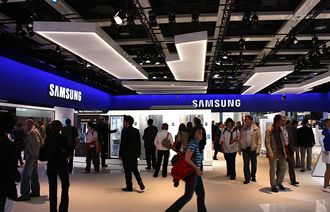 A man is backing up the parts of Google and the worldwide web that people are asking to be forgotten.
A man is backing up the parts of Google and the worldwide web that people are asking to be forgotten.
Hidden From Google, the idea of a web programmer in New Jersey, archives each website that Google is required to take down from European Union search listings thanks to the recent court decision that allows people to request that certain pages be scrubbed from Google’s search results if they’re outdated or irrelevant.
There is a concern that the people who are making the takedown requests are mostly convicted sex offenders and huge banking companies who are abusing the system to hide their crimes.
Hidden From Google doesn’t automatically archive each website that disappears from searches—instead, it relies on news reports about specific websites that are removed.
The idea is that a person can submit a link that has been removed from Google, and the site will archive it. That means that the site is far from comprehensive. It only has a couple dozen stories listed thus far. Google is wrestling with a backlog of some 50,000 requests.
Talking to Motherboard, Afaq Tariq, the site’s programmer said that Hidden From Google seemed to be something that was missing from the internet.
“Whether I agree with the concept or not, it is a perfectly legitimate way to archive the actions of this societal decision so an open discussion can take place on its impact. I built it with the notion of it empowering a fairly equipped debate.”
Tariq is not clear in his own head if the right to be forgotten should exist or not, but says that determining whether or not a website should turn up in Google searches should be a decision undertaken by the internet as a whole, not just one person.
Websites such as Chilling Effects catalogue takedown requests from the Digital Millennium Copyright Act, but have not yet begun listing sites removed from searches because of right to be forgotten requests.
Emily Hong, of Chilling Effects, wrote in a blog post that given the inherent subjectivity of the content, right to be forgotten requests promise to be even more ambiguous than copyright claims.
“Formulaic notice services are thus even more likely to upset the balance between privacy and freedom of expression by making fraudulent requests both easier to send and harder to detect. “In a pool of 50,000+ incoming notices, a false positive rate of just 0.1 percent would amount to 50 individual cases that result in the harmful loss of speech,” she wrote.
Chilling Effects is still wondering if it is possible, to catalogue all sites removed from Google searches as a result of the law.

















